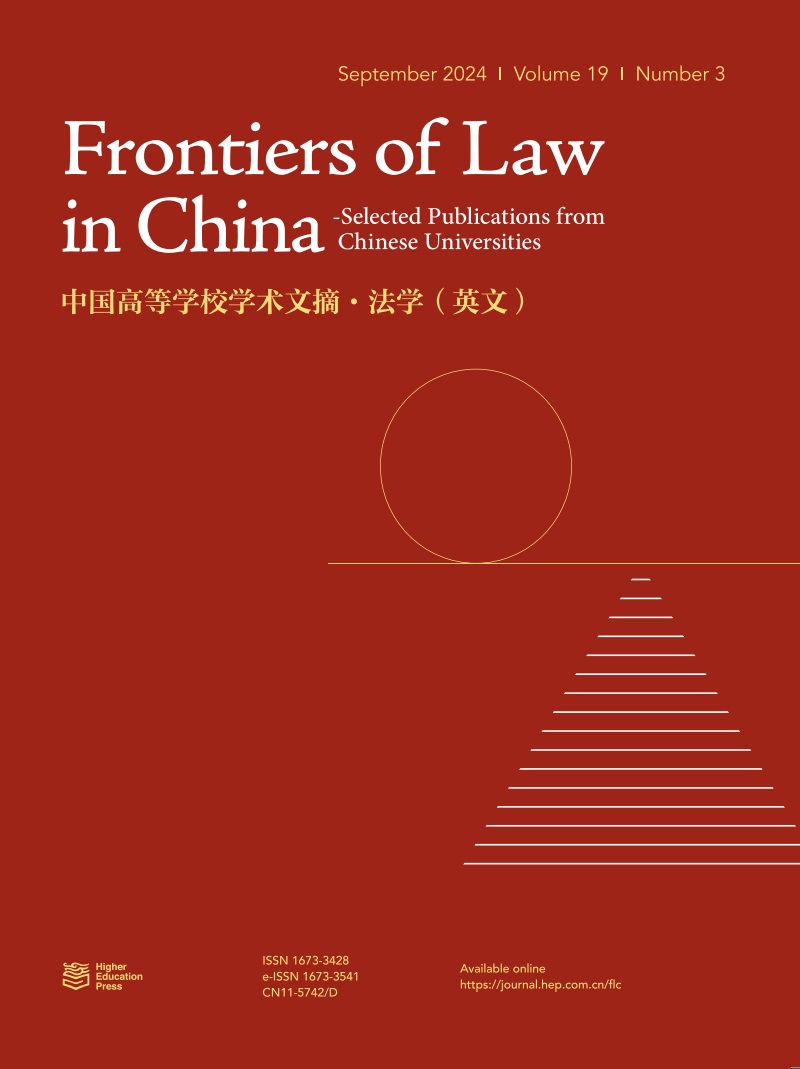UNCONSTITUTIONALITY OF RECIPROCITY REQUIREMENT FOR RECOGNITION AND ENFORCEMENT OF FOREIGN JUDGMENTS IN JAPAN
IF 0.1
4区 社会学
Q4 LAW
引用次数: 0
Abstract
This article deals with reciprocity requirement for recognition of foreign judgments in Japan. Following German law, Japanese law requires reciprocity to the rendering state in addition to the jurisdiction of the state, the service of process, and the compatibility with Japanese public policy. Although Japanese courts have rarely refused the recognition of foreign judgments for lack of reciprocity for a long time, some Chinese judgments recently have not been recognized for this reason. The author clarifies first with historical review what was the purpose of the Japanese legislator, when the original law of 1890 required the reciprocity by international treaties, and when later the reform law of 1926 required the simple reciprocity that is similarly provided in the current law. The author surveys then the Japanese case law concerning the reciprocity requirement after the reform of 1926. The author focuses further on the reciprocity between Japan and China and compares the Japanese practice with the German one that led to a different result. Last, it is concluded that the reciprocity requirement is contrary to the protection of human rights under Japanese constitution.日本承认和执行外国判决互惠要求的违宪性
本文论述了在日本承认外国判决的互惠要求。根据德国法律,日本法律要求除了国家管辖权、程序服务和与日本公共政策的兼容性之外,还与提供国互惠。尽管长期以来,日本法院很少以缺乏对等为由拒绝承认外国判决,但最近中国的一些判决也因此而不被承认。作者首先通过历史回顾阐明了日本立法者的目的是什么,当1890年的原始法律要求国际条约的互惠时,以及当后来的1926年的改革法要求现行法律中类似规定的简单互惠时。笔者考察了1926年维新后日本关于互惠要求的判例法。本文进一步探讨了日本与中国的互惠关系,并将日本的做法与德国的做法进行了比较,得出了不同的结果。最后得出结论认为,对等要求违背了日本宪法对人权的保护。
本文章由计算机程序翻译,如有差异,请以英文原文为准。
求助全文
约1分钟内获得全文
求助全文
来源期刊

中国法学前沿
LAW-
CiteScore
0.20
自引率
0.00%
发文量
398
期刊介绍:
Frontiers of Law in China seeks to provide a forum for a broad blend of peer-reviewed academic papers of law studies, in order to promote communication and cooperation between jurists in China and abroad. It will reflect the substantial advances that are currently being made in Chinese universities in the field of law. Its coverage includes all main branches of law, such as jurisprudence, constitutional jurisprudence, science of civil and commercial law, science of economic law, science of environmental law, science of intellectual property, science of criminal justice, science of procedural law, science of administrative law, science of international law, science of legal history, science of history of legal thoughts, etc.
 求助内容:
求助内容: 应助结果提醒方式:
应助结果提醒方式:


